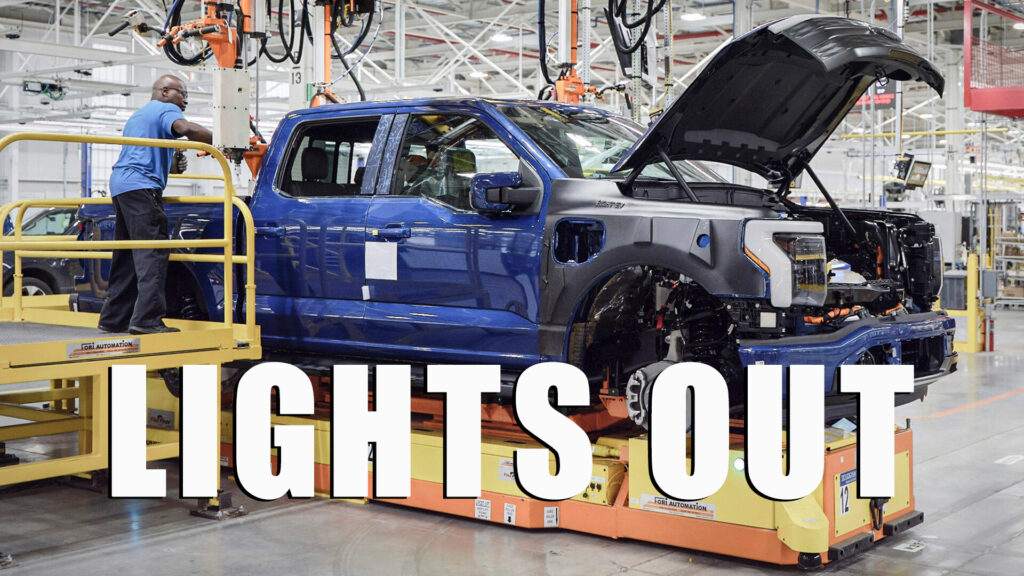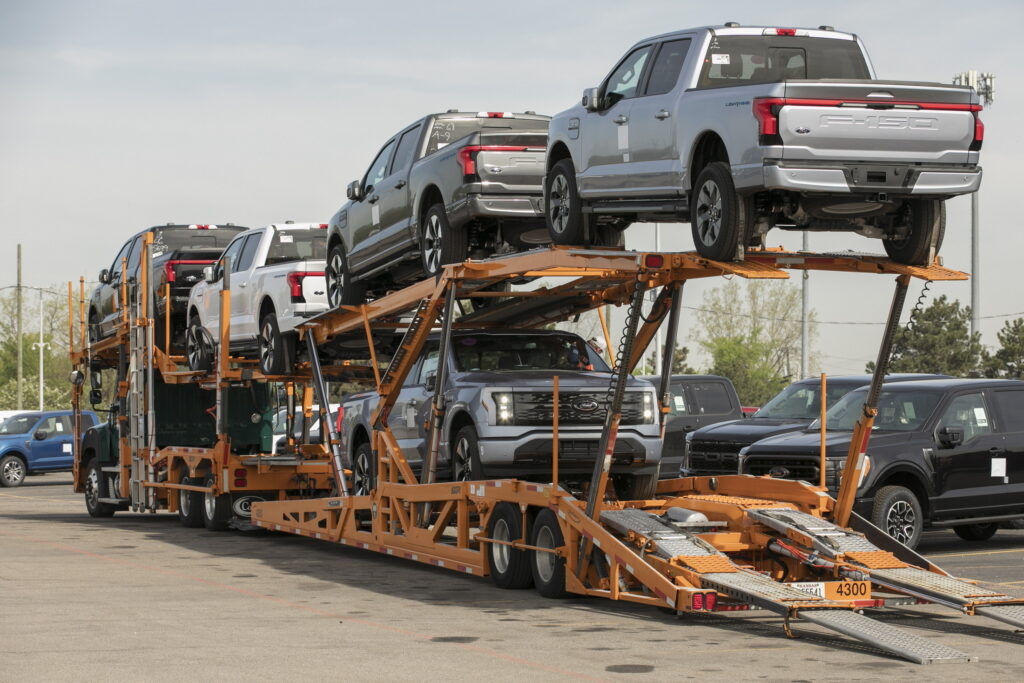These suppliers have invested millions to meet expected production rates, only to be left disappointed

Ford is reportedly slowing production of the F-150 Lightning by roughly 50 percent. While this drastic cutback may help the automaker align with demand more effectively, it poses a significant challenge for its suppliers. Tier 2 and Tier 3 suppliers, in particular, could potentially encounter severe financial difficulties as a result.
According to a planning memo seen by Autonews, Ford reportedly told its suppliers that it’s scaling back production of the F-150 Lightning to 1,600 units in early January 2024 because of “changing market demand.” That’s approximately half of its initial 3,200 unit goal for that month. In total, it would mean that Ford will build about 75,000 Lightning pickups next year.
That could still be an excessive number, considering that it has only sold just over 20,000 units through November of this year. “Everybody’s eyes were bigger than their stomachs… This downturn we’ve experienced should have been expected by the industry, but when they looked at the early growth, they figured it’d grow by [that much] each year. That was never going to happen,” said Sam Fiorani, VP of global vehicle forecasting at AutoForecast Solutions, to Autonews.
advertisement scroll to continue
Read: U.S. Dealer EV Inventories Have Doubled, No Wonder Automakers Are Scaling Back Production

Just to be clear about how much things have changed, in the midst of this year, Ford said it expected to have a production rate of 150,000 units annually by the end of 2023. Cutting that production goal by about half could end up meaning big issues for suppliers. Large Tier 1 suppliers are likely to weather the storm but that might not be the case for smaller Tier 2 and Tier 3 outfits.
“Smaller suppliers… they’re not ready for overcapacity in their plants. They need to pay bills, pay workers and they don’t have a lot of money backed up for any missed numbers,” said Fiorani. Of course, that’s assuming that these smaller suppliers relied on the initial targets that automakers predicted.
Shrewd companies might have worked in contingency plans or alternative methods to keep changes like this from affecting company health too much. Notably, they had some indication that this sort of thing might be coming. Ford scaled back production of the Mustang Mach-E earlier this year and scaled-down plans for its new battery plant in Marshall, MI.



